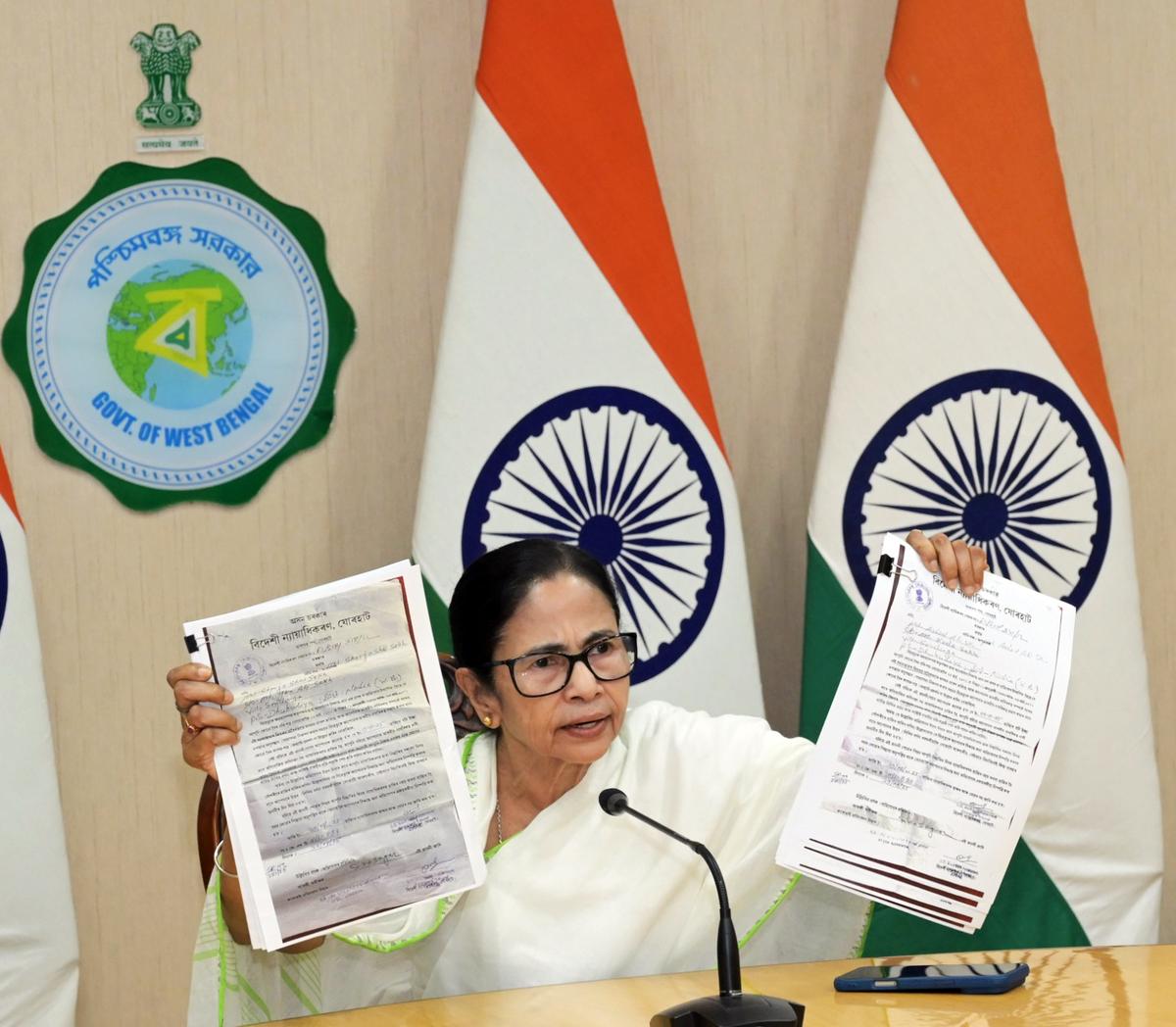The rape of a medical student in a West Bengal college has literally shaken the state’s conscience. The horror of the case aside, it has once again unveiled gaps in administration and public-safety infrastructure of the state. It’s not long back that we saw the rape and murder of a trainee doctor of RG Kar Medical college and hospital. Like always, the chief minister Mamta Banerjee was quick to come up with excuses, a strategy she has been employing for more than ten years.
Just when this crime happened, the state was in the spotlight for the Election Commission of India’s Special Intensive Revision (SIR) — a detailed process of updating and verifying the state’s voter list. While the Chief Minister Mamata Banerjee has expressed strong disapproval of the proposed SIR, calling it potentially exclusionary, the question arises as to how well the state government knows about the citizens
Let’s understand the SIR and its timeline
The Times of India and The New Indian Express report that the last Special Intensive Revision (SIR) in West Bengal was in 2002, that is, more than 20 years ago. The Election Commission brought back the procedure in 2025 to ensure that the voter lists were correct and up-to-date. The Economic Times (August 2025) reported that the Commission’s decision was to extend the SIR to five more states.
Mamata Banerjee and some Trinamool Congress leaders were quick to allege that the SIR was a tool that could be utilized for deleting genuine voters, particularly from minority and migrant communities (India Today, June 2025). Although the Election Commission officials mentioned multiple times, that “the revision is for verification and not for exclusion” and “no valid voter will be dropped during SIR”. The assurance and practical instance in the face of SIR with zero objections in Bihar also could not pacify Mamata Banerjee. But the inquiry persists, does the Mamata led West Bengal Government have any reliable data on its residents. Without which the maintenance of internal law & order would always be in question.
The Importance of Maintaining Reliable Voter and Residency Data
- Governance and Safety: Correct voter rolls are not only the tools of electoral administration — they are the pillars of civic governance. Through residence information, law-enforcement and local authorities are enabled to act quickly in emergencies, keep track of the mobile populations, and plan safety measures in the areas like hostels and rented accommodations that are most likely to be affected. After the medical college tragedy, for instance, such data could have supported faster identification, preventive patrolling, and accountability mechanisms.
- Electoral Integrity and Transparency: The SIR is the mechanism for the removal of duplicate, outdated and fake entries so that elections remain clean. Transparent revision is the protection of citizens’ democratic rights as it makes sure that every legitimate voter is included and impersonation or fraud, at least, are prevented.
- Administrative Efficiency: Government agencies, among others, can utilize voter and residency data to deliver their services, for instance, welfare schemes and urban planning, in a targeted manner.(a well-maintained) database helps authorities to allocate resources according to the actual population clusters rather than relying on outdated assumptions
- Law and Order: In criminal investigations or crises, residence records that are authentic play a vital role in the verification processes. It is made simpler to trace the suspects, confirm the alibis and evaluate whether the accused who are committing crimes in the particular area reside there as well. The ability of the state to keep public order is directly linked to the quality of such fundamental data.
When the relevance of the Special Intensive Revision (SIR) is debated, we may, for once, recall the chilling incident of March 2015 in Nadia, where six men, five of them Bangladeshi nationals broke into a missionary-run co-ed school at Ranaghat to commit robbery. When the senior-most nun tried to intervene, she was brutally assaulted and raped, while others were locked away in another room. That episode was not merely an act of barbarity; it exposed the grave lapses in border vigilance and administrative awareness. Had there been a robust SIR process and an active civic vigil, the infiltration of such elements could perhaps have been averted.
The interwinning of SIR with the rape of medical stundent and the overall deplorable law & order situation in West Bengal is thus pertinent. The alleged assault on the medical student in West Bengal is more than a lamentable criminal case — it is a clear indication of administrative blind spots. The Special Intensive Revision gives the state an opportunity to know its people better, to map its constituencies responsibly, and to integrate safety, governance, and democracy through accurate data. When done with transparency, they are not tools of exclusion, but rather, the pillars of empowerment.
Finally, we may also say that accurate data in a state as politically vibrant as West Bengal is not just an electoral requirement — it is the lifeblood of democracy and governance. The administration must take the necessary steps to guarantee that the next SIR will set the benchmark for transparency, security, and inclusion. More than ever, following the chain of events, it is obvious that knowing who lives where, responsibly and ethically, is not only essential for voting but also for saving lives.









